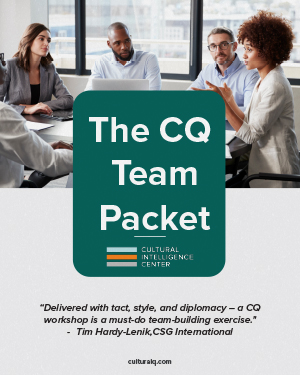While decades of public health research have proven vaccines to be safe and efficacious, vaccine hesitancy persists and seems to be on the rise. Whether considering childhood immunizations or COVID-19 boosters, patients have many reasons for opting out of vaccines including religious beliefs, misinformation, and historical medical trauma.
To address patients’ vaccine hesitancy, providers must not only communicate clearly but they must leverage cultural intelligence (CQ). CQ is the ability to engage effectively with individuals who have different backgrounds and belief systems. Here is how providers can leverage CQ to communicate effectively:
1. Understand the Cause of Hesitancy
CQ equips providers with the skills needed to understand the cause for vaccine hesitance, communicate with patients in a way that is respectful of their concerns, and build trust between patients and providers, which is essential to care. Patients who trust providers are more likely to ask questions and follow medical guidance.
2. Recognize Cultural Barriers, Not Just Knowledge Gaps
CQ allows providers to understand the cultural norms, misinformation networks, historical context, and other fears that may impact patients’ decisions about vaccination. This deeper understanding allows for a more respectful and effective dialogue.
3. Develop Culturally Intelligent Patient Engagement Strategies
CQ gives healthcare providers the skills they need to develop outreach strategies that resonate effectively with different audiences. Community campaigns are a great tool for decreasing vaccine hesitancy, especially when people can ask questions1. Group-based educational sessions and ambassador campaigns can be leveraged to reach diverse populations1. CQ can help providers understand the best communication channels and messaging for a broad range of audiences, and how to frame information in a way that delivers maximum impact.
Vaccine hesitancy is not just a medical issue. It’s deeply ingrained in the cultural values and beliefs of patients. By investing in CQ, providers can develop genuine connections and trust with patients, which are key to overcoming barriers to care. CQ can increase understanding of different perspectives, improve communication, and lead to strengthened partnerships and collaboration1. The Cultural Intelligence Center provides consulting solutions that are backed by over 20 years of research in over 150 countries. Our solutions help healthcare professionals understand, navigate, and influence across teams and cultures. Interested in learning more about how the Cultural Intelligence Center can help your organization?
See how CQ can improve patient care, boost communication, and improve teamwork by meeting with our healthcare expert!
Source:
- Richard-Eaglin, Angela; McFarland, Michael L; Applying Cultural Intelligence to Improve Vaccine Hesitancy Among Black, Indigenous, and People of Color. Nursing Clinics of North America, Volume 57, Issue 3, September 2022, Pgs. 421-431, Accessed April 8, 2025
